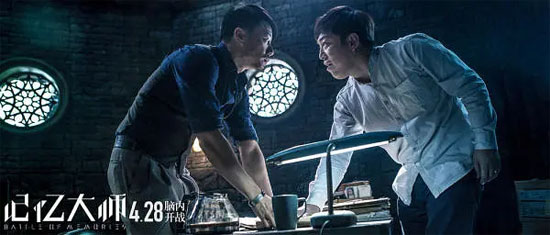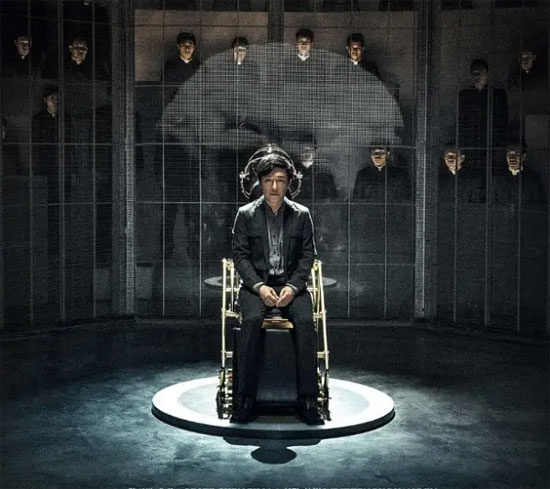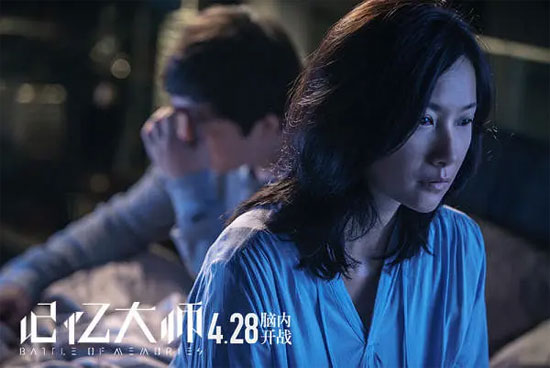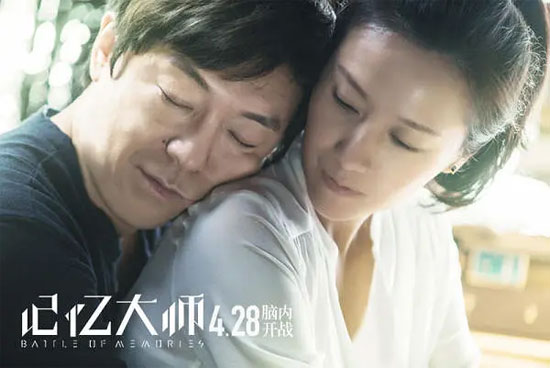Film Name:記憶大師 / Battle of Memories
Let’s briefly discuss my thoughts after watching this film.
(I now prefer writing TV reviews over movie reviews precisely because, with more space and flexibility, TV series can tell stories more effectively. I can focus solely on the narrative, whereas a film’s significance extends far beyond just a good story—it’s burdened with so many additional expectations. Without sufficient depth and reflection, it’s genuinely challenging to write about it well.)
On “Battle of Memories.”
For many, Chen Zhengdao truly gained recognition and acclaim with his 2014 debut in the “Master” series, “The Great Hypnotist.” That film shattered domestic box office records for suspense thrillers at the time. I was genuinely impressed watching it in theaters—after all, few in contemporary Chinese cinema can craft suspenseful narratives with such flair. His subsequent film “20 Once Again” proved he could also craft compelling youth dramas.
Three years later, “Battle of Memories” finally premiered thanks to Chen Zhengdao’s persistence. After watching it, I feel it represents significant progress over “The Great Hypnotist.” For a creator, such growth is invaluable.
This growth extends beyond the film’s primary draw—its suspense—to encompass its supplementary elements.
First, the suspense.
This is a story about solving a crime and identifying the culprit. From the outset, we’re thrust into this sudden conundrum. As clues accumulate and relationships between protagonists shift, the narrative unfolds with twists, turns, and thrilling moments.

Jiang Feng’s character shift—from initial skepticism to later obsession—created significant complications for the truth’s revelation. Shen Hanqiang, the sharp and capable hard-boiled detective, appeared flawless yet harbored his own vulnerabilities. Zhang Daichen’s reticence added an air of mystery. Chen Shanshan’s smoke screen was transparent, yet one must admit it was remarkably convincing… Truthfully, this film features a relatively small cast. Yet director Chen Zhengdao masterfully crafts a convoluted, multi-layered narrative within these constraints. By the time the explosive truth unfolds, I found myself genuinely jolted—no wonder screenwriter Ren Peng confessed Chen Zhengdao nearly drove him mad…
I’ll leave it at that. Many will have opinions, but the best way to experience it is to see it for yourself. For seasoned film buffs, the film’s quality might not quite reach top-tier status.
Now, about the soft sci-fi elements.
Set in 2025, Jiang Feng and Zhang Daichen are going through a divorce and opt for surgery at the Memory Master Medical Center. Instead of removing memories, the procedure eliminates the emotions and feelings tied to specific recollections. Due to an accident, Jiang Feng accidentally receives someone else’s memories, suddenly becoming a “murderer”—and that’s where the story begins.

This setting isn’t overly distant, and most elements and technological advancements remain within our current understanding. Chen Zhengdao carefully unfolds a future world that isn’t wildly fantastical, testing whether audiences will embrace this gradually expanding genre (domestic sci-fi—talking about it brings tears to the eyes, and the few that take too big a leap…).
This exploration undoubtedly contributes significantly to the development of genre films, and such courage deserves respect and applause.
Now, about domestic violence.
The two murders in the film appear vastly different in style, yet they share a common theme: domestic violence.
This subject matter isn’t exactly novel in film and television, and the depth and presentation here are fairly standard—yet when embedded within an unfolding mystery, it takes on a distinct flavor.

Li Huilan, while suffering, lacks the courage to change and clings to unfounded hope for her husband Li Hang. The mysterious woman endures time and again for her family and children. Both are quintessential female archetypes in domestic violence cases. Their “typicality” plays a crucial role in fostering, influencing, and shaping the killer’s sexual personality. Is domestic violence truly just a matter between one family and those directly involved? Clearly not—it concerns every single person.
Then there’s marriage.
This is a much larger topic, and the film wisely avoids attempting to grasp its full essence. Instead, it merely skims the surface of the issue of “sacrifice.”
Both Jiang Feng and Zhang Daichen were promising writers when they married. Yet Zhang Daichen gradually stepped back to support her husband’s career, and for the sake of their child and family, she ultimately abandoned her own professional aspirations entirely.

Financial issues are always a major concern for couples, and there’s no one-size-fits-all solution—how they handle it is entirely up to them. In the case of the protagonists, Zhang Daichen chose to sacrifice herself. Although Jiang Feng later achieved success, the cost of this sacrifice was ultimately unacceptable. Compounded by the failure to conceive, it brought even greater disappointment and despair, leading Zhang Daichen to initiate the divorce. Jiang Feng doesn’t seem like a heartless man, but in this rupture, can we truly assign blame?
Finally, there’s emotion.
Emotion is a crucial element within the film’s “suspense,” serving as the ultimate trump card that elevates the story’s tone.
According to the premise, those who undergo the procedure only have the emotions tied to memories removed—the objective facts remain intact, but they shift from being participants to observers. Yet, if this were truly possible, would those memories still be their own?

Thus, after bearing the killer’s memories, Jiang Feng—once a gentle, honest man—developed the murderer’s gaze and began acting with ruthless, erratic cruelty. Conversely, at the final moment, the killer’s flawless plan faltered and became impossible to execute because of Jiang Feng’s deeply emotional memories. All the suspense, tricks, counter-tricks, and schemes are like a plate of exquisitely prepared home-cooked dishes. That pinch of genuine emotion is the salt sprinkled just before serving.
This is why I say Chen Zhengdao has grown: While “The Great Hypnotist” delivers suspense, it ultimately tells a rather ordinary love story. It’s enjoyable, yet somehow feels a bit flat. Whereas “Battle of Memories” elevates suspense to a more sophisticated level, while also weaving in elements like soft sci-fi, domestic violence, marriage, and emotional dynamics. Individually, none of these elements might stand out as truly exceptional, but to integrate them all meaningfully within a single narrative is no small feat.
Sticking to old ways is easy; pushing forward requires immense resolve and courage.
I sincerely hope the market will see more domestic genre films like “Battle of Memories”—less superficiality, more sincerity.
Please specify:Anime Phone Cases » attle of Memories 記憶大師 2017 Film Review: Beyond the suspense lies even more surprises.